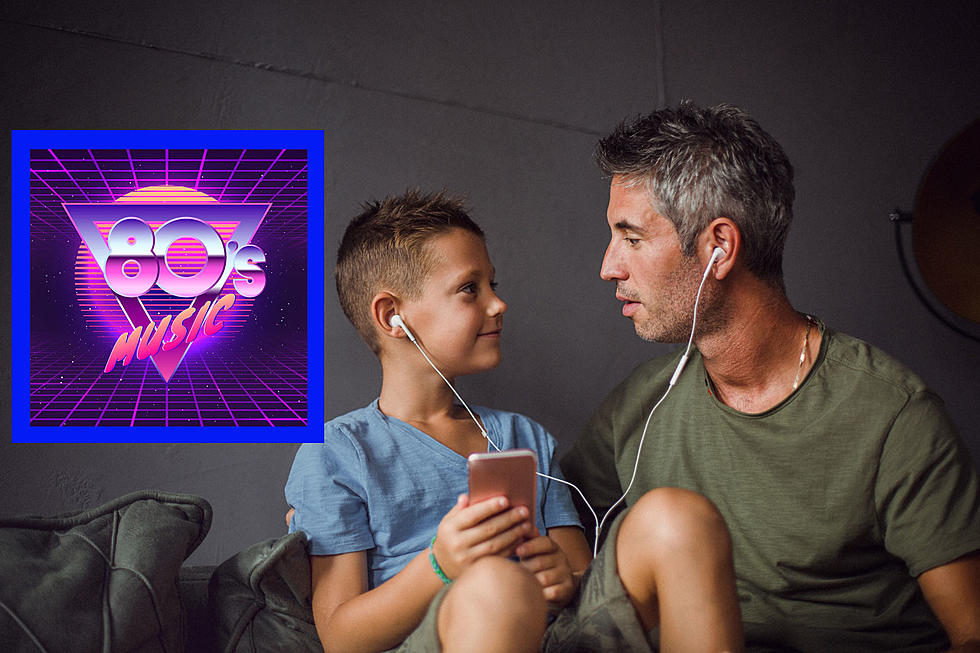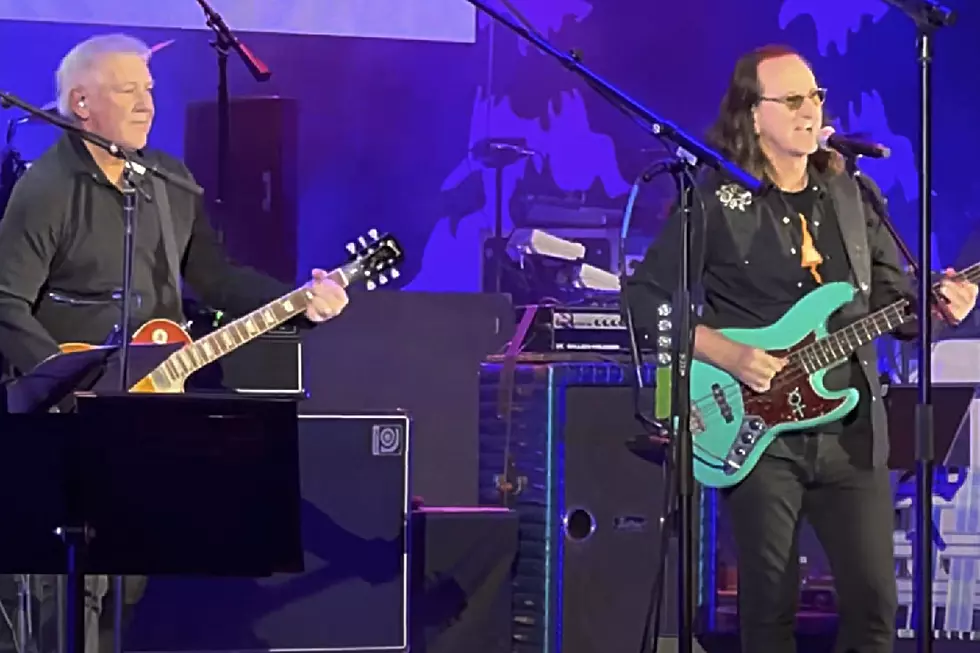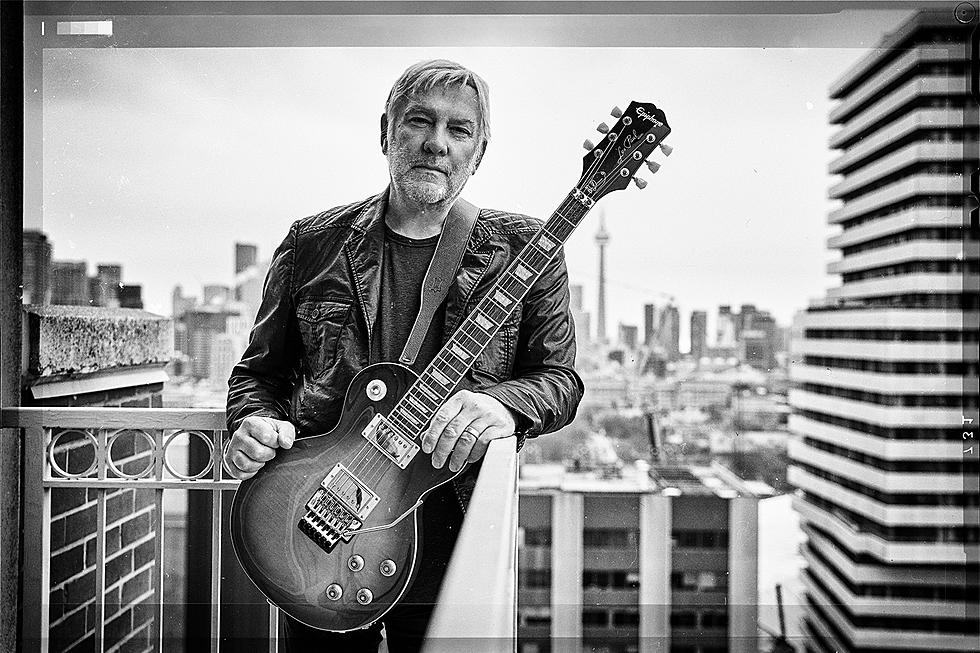
Why Alex Lifeson Took a Solo Detour From Rush With ‘Victor’
After a quarter-century of regular recording and constant touring, you'd think Rush guitarist Alex Lifeson might have been ready for a bit of a vacation when the band decided to take a year off in 1994. Instead, he went right back into the studio and came out with a one-off band called Victor, whose self-titled debut was released on Jan. 9, 1996.
Part of the impetus behind the new project was Lifeson's life situation: Unlike Geddy Lee, who wanted time off to be with his infant daughter, and Neil Peart, whose outside interests included travel and forays into jazz, Lifeson found himself well and truly at loose ends, and left with no good reasons not to dabble in solo recording.
"I couldn't see myself sitting around for a year and a half not doing anything more constructive than working on my golf game," Lifeson told Rockline. "I kind of dove into it at that point."
And he dove in — at least initially — more or less completely on his own, putting together a collection of demos in his home studio and laying down the tracks himself. Not content to put out a collection of songs for its own sake, Lifeson purposely pushed himself, returning to writing lyrics for the first time in nearly 20 years and organizing the new material around a single theme: the dark side of love.
"I wanted to make an emotional statement," he told Metronome. "I didn't want to make a record that would typically be made by someone like me, from a band like Rush where you'd expect 50 minutes of all this textural guitar stuff and wailing away. I really wanted to downplay that."
To that end, Lifeson eventually set about building a band, recruiting a crew of guests and session players to flesh out his demos. Apart from Victor's core unit of guitarist Bill Bell, bassist Peter Cardinali, and drummer Blake Manning, Lifeson enlisted the support of two vocalists: Dalbello, who added her Geddy-like wail to the track "Start Today," and I Mother Earth frontman Edwin, who contributed vocals to five songs during downtime between sessions for his own band's next record. Primus bassist Les Claypool also appeared on one song, "The Big Dance."
Listen to Alex Lifeson's 'Victor'
"I wanted it to sound like a band playing off the floor. I wanted it to have that connection, that cohesion, that harmony among all the instruments mixed in the music," he said. "It wasn't always easy to do, but I didn't want any one instrument to be the feature. I also wanted a certain energy to what I was doing. There are some bands I enjoy like Alice in Chains and Soundgarden, so I wanted to get back to that same kind of mood and coloring in what I was doing."
Lifeson's label doubtless would have loved it if he'd been able to pull in Alice in Chains or Soundgarden-sized sales when Victor's self-titled debut arrived in stores. But for a variety of reasons — including the somewhat anonymous approach of the overall project, and Lifeson's looming commitment to the next Rush recording — promotional efforts were fairly muted, and Victor rose no higher than No. 99 during its chart run.
None of which seemed to bother Lifeson in the slightest. He was back in the studio with Rush not long after Victor was released, and wouldn't have been able to devote any real time to promoting the album even if it had taken off — and anyway, at that stage of his career, he didn't necessarily need to worry about sales; as he told Metronome, he made Victor for himself first.
"Over the years I've learned that If I do hear something in my head in a complete version, I needed to find another outlet for it," Lifeson explained. "I have a much better understanding of that after getting all this music out of my system and hearing it exactly the way I always heard it. I feel much more balanced in terms of where I want to go with Rush now, or where I think Rush should go."
Rush's next record, Test for Echo, was out before the end of the year, and though Lifeson later admitted to suffering some culture shock when returning to the band environment after experiencing the freedom of being in charge of his project, the group quickly settled back into a groove. In a career full of distinguished achievements for Rush, Lifeson looks back on Victor as his proudest accomplishment.
"Everything was on my back. I produced it, I wrote it, I got musicians together, I played bass, I played guitar, I played keyboards, I worked on the cover art. I did the whole thing," he told Spin. That was probably my greatest accomplishment in personal terms of being a musician and taking on the responsibility of making a record - which we all share within Rush, with the producer, the three of us and our office. It didn't matter to me if I sold one copy or a billion. I did it. I put the time and effort in, and that was a very proud moment for me when I finished that record."
See Alex Lifeson Among Rock’s Funniest Guitar Faces
You Think You Know Rush?
More From WPDH-WPDA










